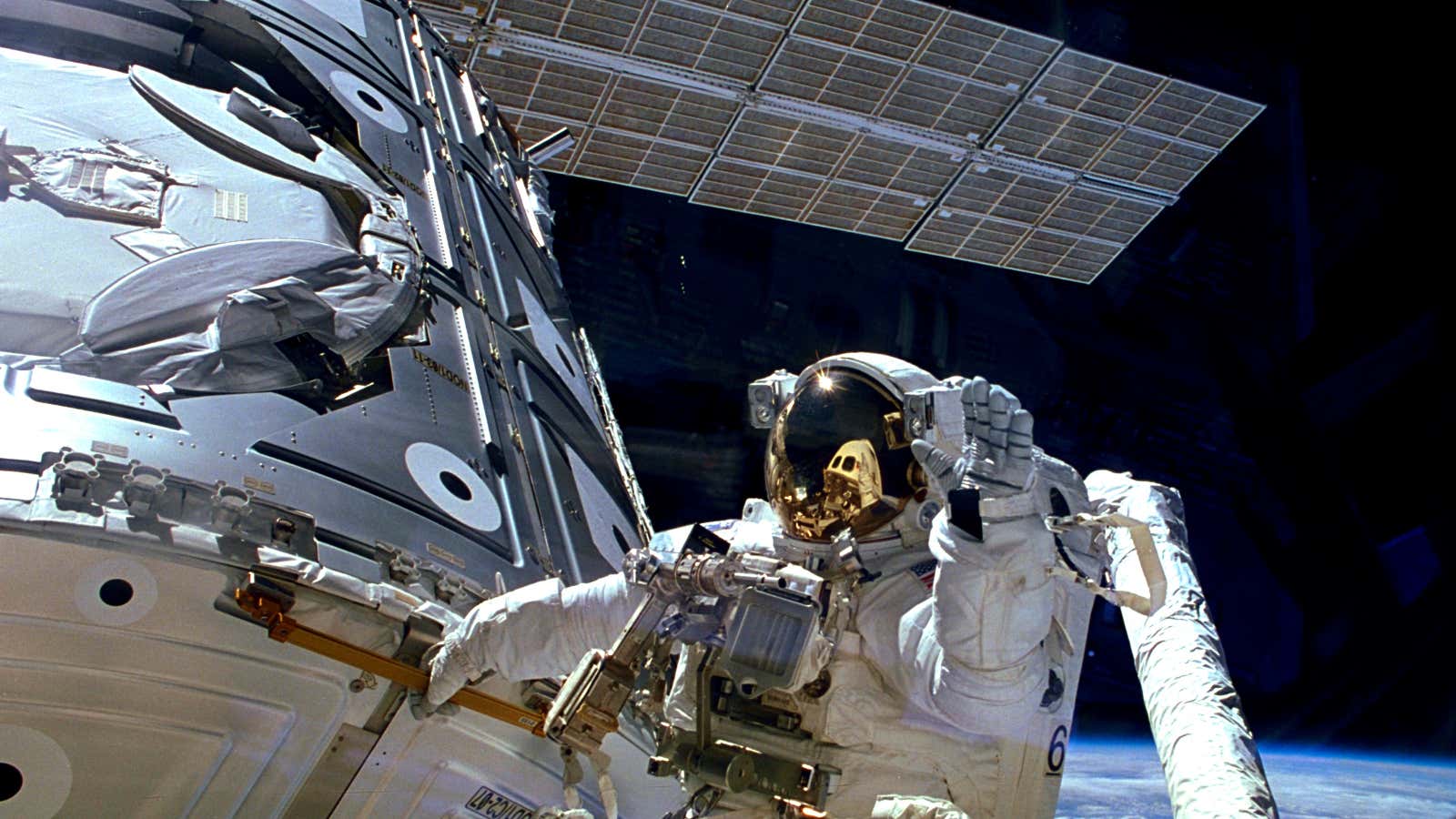The International Space Station, which will mark its 16th year in orbit this year, cost an estimated $150 billion to build and maintain (with $75 billion invested by the US alone), but private companies have only spent $14,505 on research performed in the station’s orbital laboratory.
That meager amount will exacerbate the challenge of funding the station’s operations in the years ahead. The number emerged from an audit of the ISS program by the inspector general at NASA, the US space agency.
The audit found that NASA is likely low-balling the cost estimates for keeping the ISS aloft and fully functioning, as it transitions to relying on the private sector to transport astronauts and cargo to the station. Given the costs, it is key to maximize the benefits—and one of the challenges is that the Center for Advancement of Science in Space, the organization in charge of managing the laboratory onboard ISS since 2011, has had minimal success in recruiting private firms to perform research in micro-gravity conditions.
Despite offering financial incentives, CASIS has attracted very little interest—just the $14,505 mentioned above, along with unfulfilled pledges for $8.2 million in funding. The audit identifies several reasons for this, including advances that make it possible to perform experiments on things like protein crystallization in earthbound labs. But the biggest obstacle is that NASA initially said that it would own both the patents and the data related to any research on the station, a major buzz-kill for companies interested in applied research.
In 2012, the NASA relinquished its claim on patents, but reserved the rights to research data. The move didn’t prove effective at spurring more research. Last year, NASA asked Congress to change the law governing space research to make clear that users of the laboratory retain full rights to the results of their research. “These revisions would help to alleviate commercial stakeholders’ concerns over data rights, which in turn may increase commercial utilization of the ISS,” the audit notes, but no bill has been introduced to make this change, and Congressional leaders have said it will not take up space legislation until next year.
There is at least some good news: Utilization of research space on the station and the time spent on research by astronauts has been on an upward trend, with 80.7% of the lab space utilized and 44.3 hours of research performed per week during the most recently completed mission.
